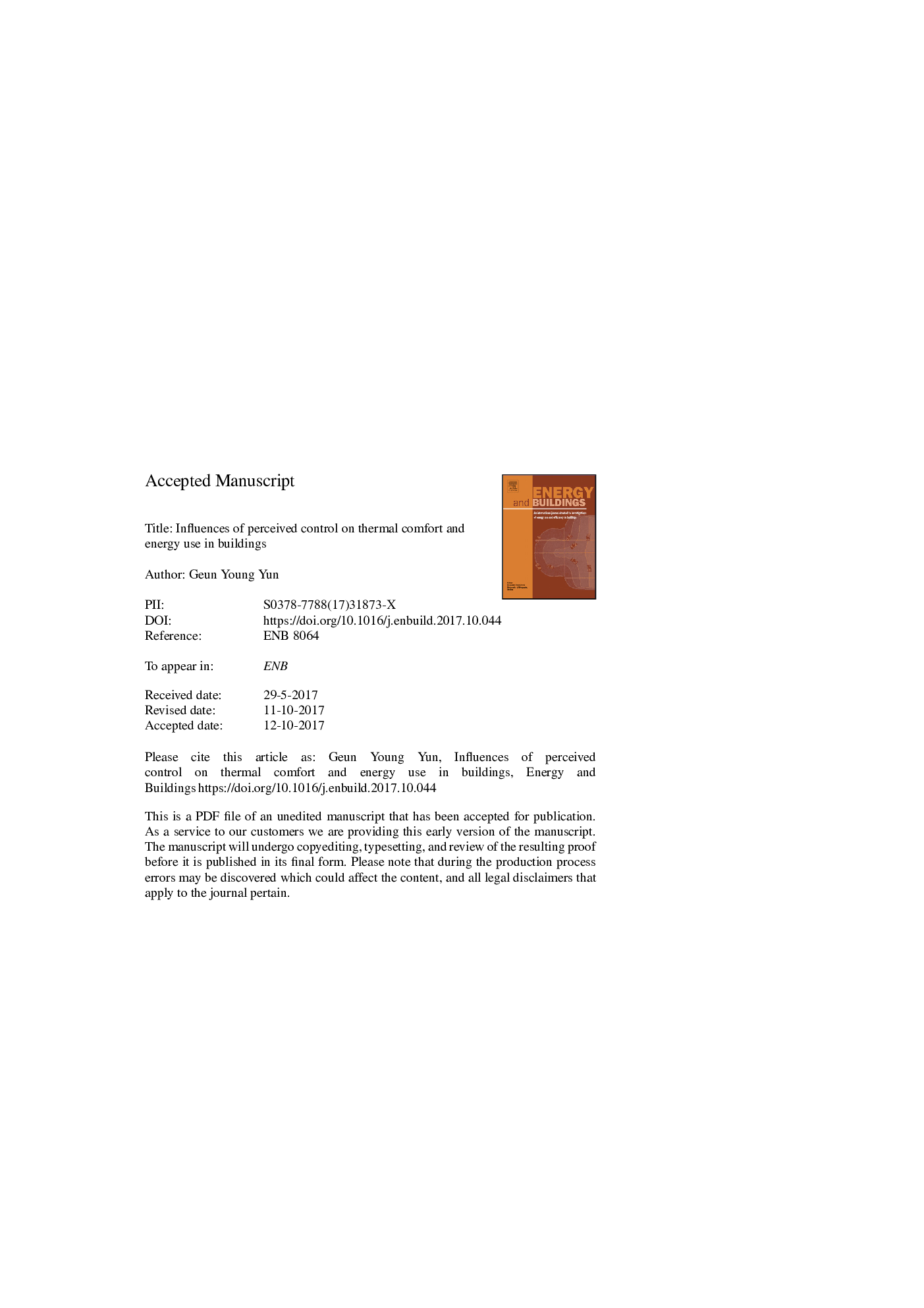| Article ID | Journal | Published Year | Pages | File Type |
|---|---|---|---|---|
| 6729466 | Energy and Buildings | 2018 | 28 Pages |
Abstract
This study explores the role of occupants' perceived control in their subjective evaluation of thermal environments and its effects on cooling energy consumption in air-conditioned buildings. Seven air-conditioned buildings with operable windows were selected for field measurements in South Korea. The monitoring data give evidence of a statistically significant relationship between perceived control and the thermal sensations of occupants. The summer comfort temperature for the group with a high level of perceived control over the thermal environment was 0.9 °C higher than that for the group with low perceived control. Also, the high perceived control group felt cooler in summer than the low perceived control group. After identifying the effect of perceived control on comfort temperature, dynamic building energy simulations were conducted using EnergyPlus to examine the influence of perceived control on building energy consumption. The simulation results show that increasing occupants' perceived level of control over the thermal environment could reduce cooling energy consumption by 9% without sacrificing the thermal comfort of the occupants.
Related Topics
Physical Sciences and Engineering
Energy
Renewable Energy, Sustainability and the Environment
Authors
Geun Young Yun,
